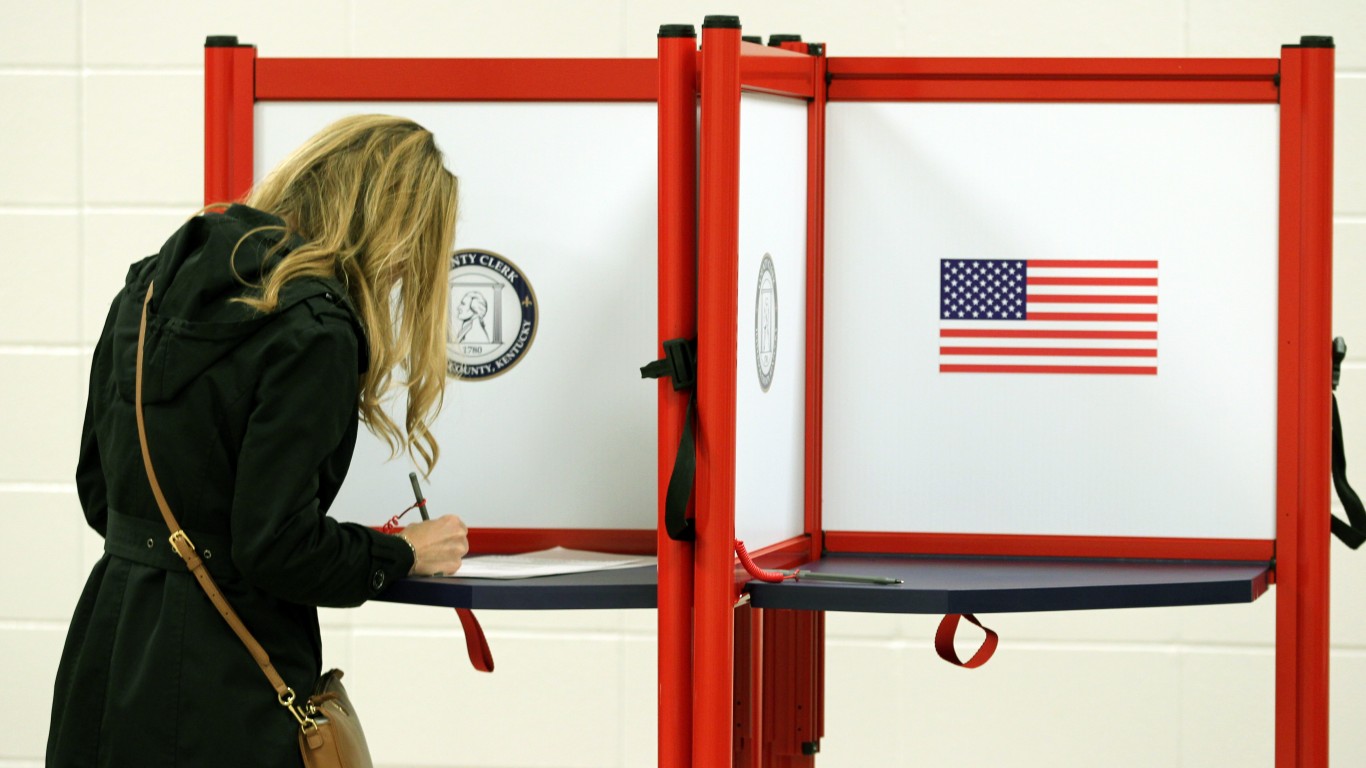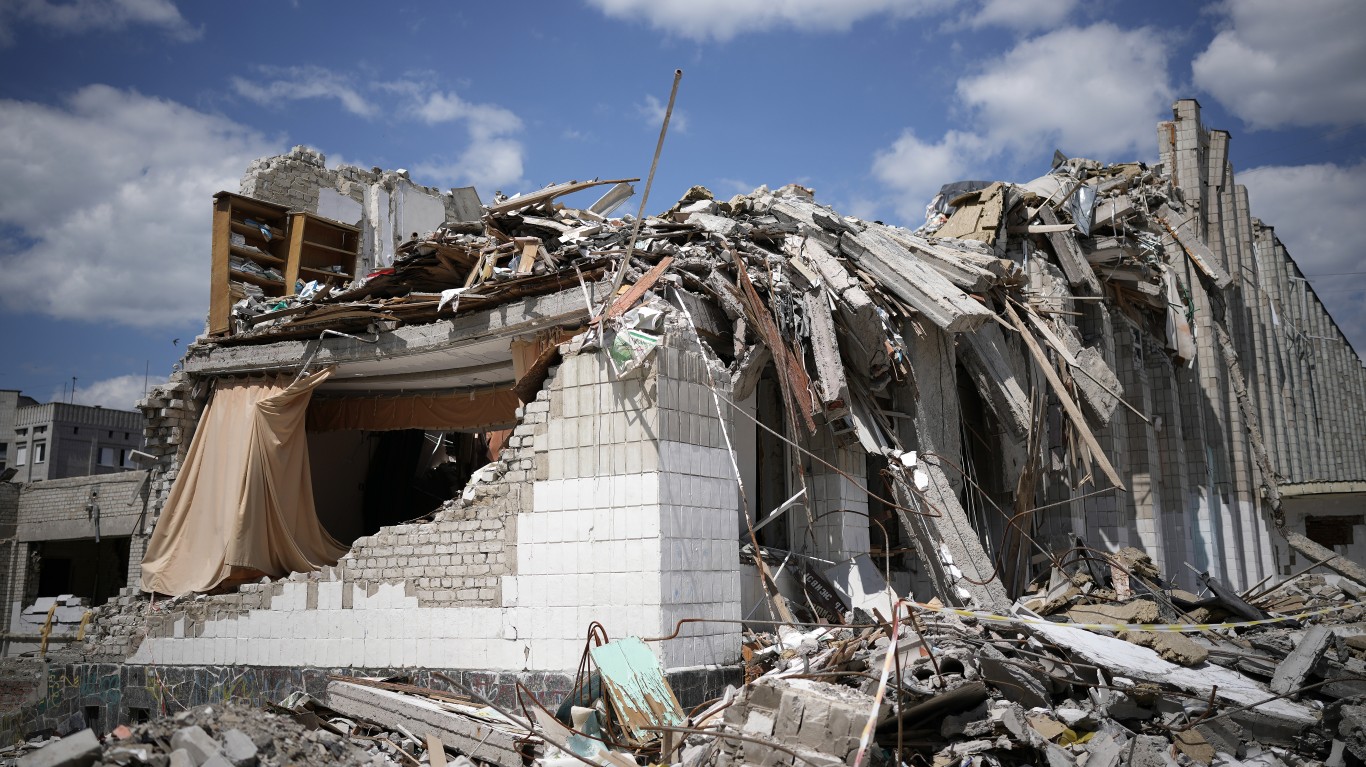
This week, after a three-day summit in Japan, members of the G7 pledged to intensify sanctions. The consequences of the West’s sanctions on Russia drag on month after month. Energy prices, and inflation in general has fallen somewhat, but remain relatively high.
Economic sanctions are increasingly used to counter geopolitical threats, protest human right abuses, fight drug trafficking, promote the overthrow of governments, and even to protect the environment.
Proponents of economic sanctions argue that in an increasingly globalized and integrated world, no country can afford to lose access to the global trade and financial system. Therefore sanctions against a country’s key industries, or against its powerful bad actors, can force change without resorting to military intervention.
Critics argue that sanctions can wind up punishing people in target countries who have little to do with the authoritarian powers that rule over them, and that sanctions often fail to achieve their objectives. In particular, unilateral sanctions are considered more harmful than those imposed by coalitions, like the sanctions G7 countries have imposed against Russia for its invasion of Ukraine earlier this year. (While Russia is being sanctioned, Ukraine is getting aid. These are the countries sending the most aid to Ukraine.)
“Such policies can reduce the economic performance of the targeted state, degrade public health, and cause tens of thousands of deaths per year under the most crushing sanctions regimes,” wrote Richard Hanania in a report for the libertarian think tank Cato Institute in February 2020. (Also, countries are interdependent. This is the country that is most dependent on Russian oil.)
Whatever the case may be about the ethics and efficacy of sanctions, the number of them against Russia has ballooned this year thanks to its full-blown invasion of Ukraine in February. Seven countries and the European Union have imposed more than 10,000 new sanctions against Russian enterprises and individuals this year, nearly quadrupling the number prior to the invasion. But not just Russia is being sanctioned.
To find the most sanctioned countries, 24/7 Wall St. reviewed sanctions compliance provider Castellum.AI’s Russia’s Sanctions Dashboard, which is updated weekly (data was retrieved on Dec. 13). Sanctions include export controls and regulatory fines, among others, and are since public records are available for each source country, according to Castllum.AI. Data on gross domestic product in current U.S. dollars, population, and exports and imports as a percent of a country’s GDP came from the World Bank. Democracy index for 2021 came from The Economist Intelligence Unit.
Russia is by far the most sanctioned country right now, but six other countries are also targets of this economic weapon, each with hundreds if not thousands of sanctions. Iran is the second-most sanctioned country for its nuclear weapons program, its support for Shia militant groups in the region, and its domestic human rights program.
While the bulk of sanctions against Russia have been imposed since its invasion of Ukraine, sanctions against Iran and the other countries on the list have been imposed before the invasion. All the sanctioned countries are authoritarian regimes to a degree, scoring extremely low on the Democracy Index.
Here are the world’s most sanctioned countries.
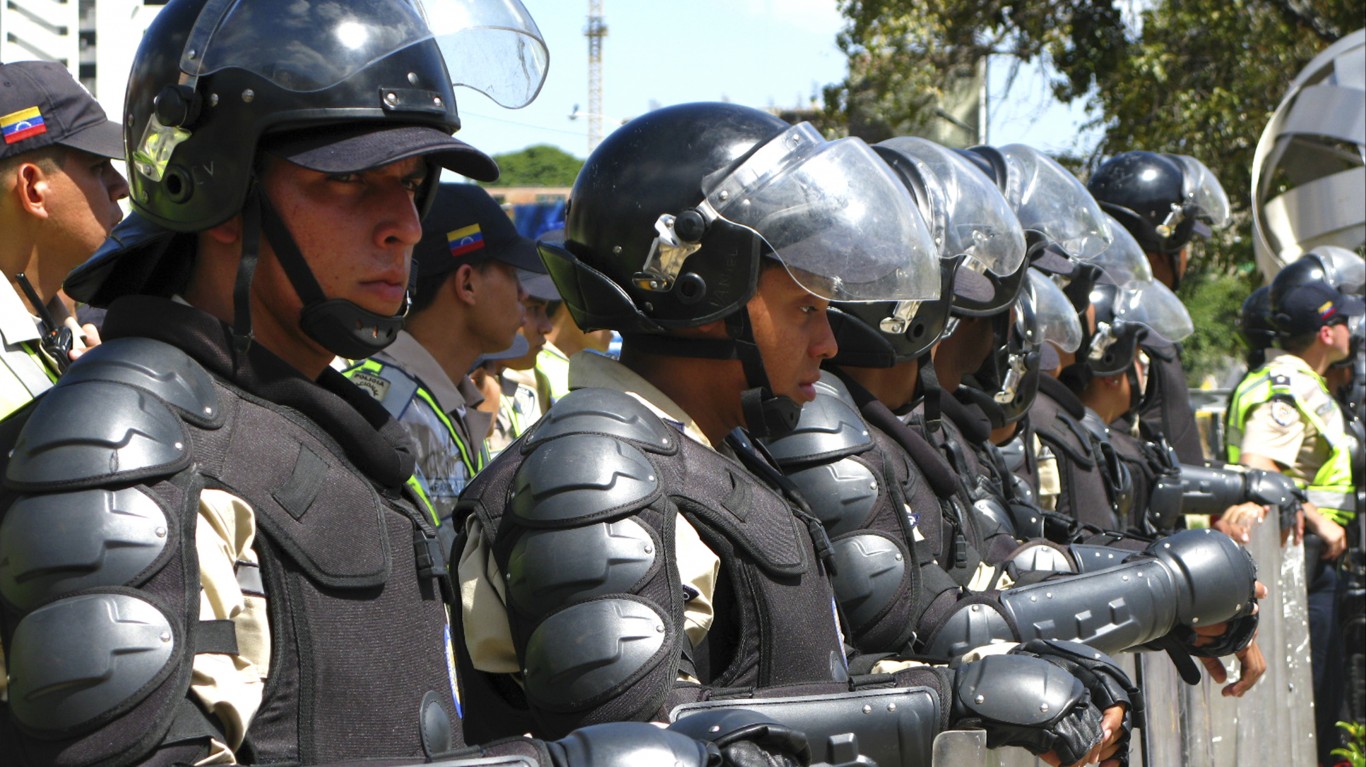
Venezuela
> Total sanctions: 651
> Sanction announced since Russia’s invasion of Ukraine: 0
> GDP, current USD, 2014: $482.4 billion
> Exports % of GDP, 2014: 16.7%
> Imports % of GDP, 2014: 31.4%
> Democracy index: 2.1 out of 10, #151 of 167 countries
> Population, 2021: 28,704,947
The number of sanctions against Venezuela escalated after Nicolás Maduro won a second presidential term in a contested election in 2018. The election was considered fraudulent by Venezuelan opposition leaders, the United States, and independent observers. Amnesty International considers this South American country of 29 million people to be in an economic crisis under a policy of repression by the Maduro government. The U.S., Canada, and the European Union have sanctions against Venezuela.
[in-text-ad]
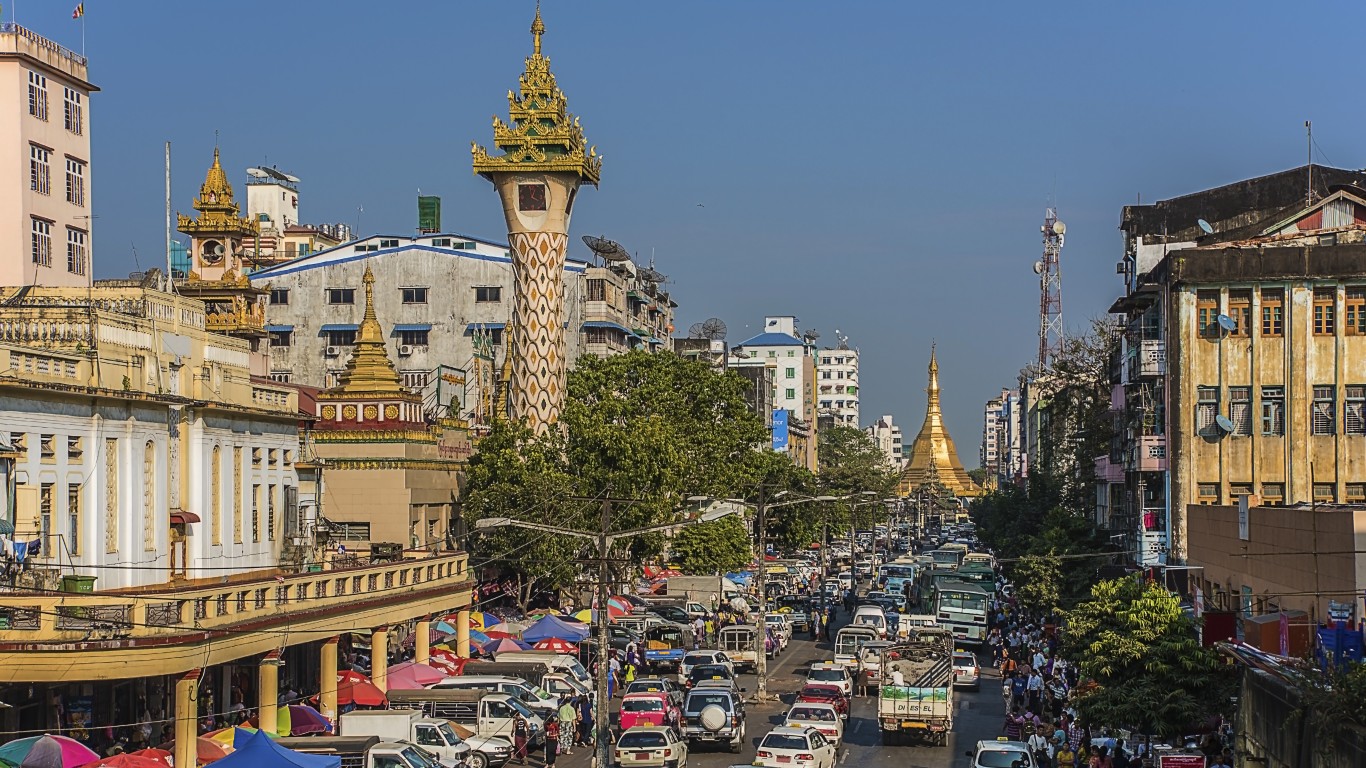
Myanmar
> Total sanctions: 769
> Sanction announced since Russia’s invasion of Ukraine: 311
> GDP, current USD, 2021: $65.1 billion
> Exports % of GDP, 2021: 28.3%
> Imports % of GDP, 2021: 24.8%
> Democracy index: 1.0 out of 10, #166 of 167 countries
> Population, 2021: 54,806,014
The February 2021 Myanmar coup d’état led to a raft of sanctions against the military junta and its web of enterprises. But this Southeast Asian country of 55 million people has been a sanctions target over its human rights record dating back to the 1990s, when Australia imposed an arms embargo, trade restrictions, travel bans, and asset freezes of individuals and entities. European Union sanctions date back to 2008. The United States has imposed sanctions against Myanmar since 2003.
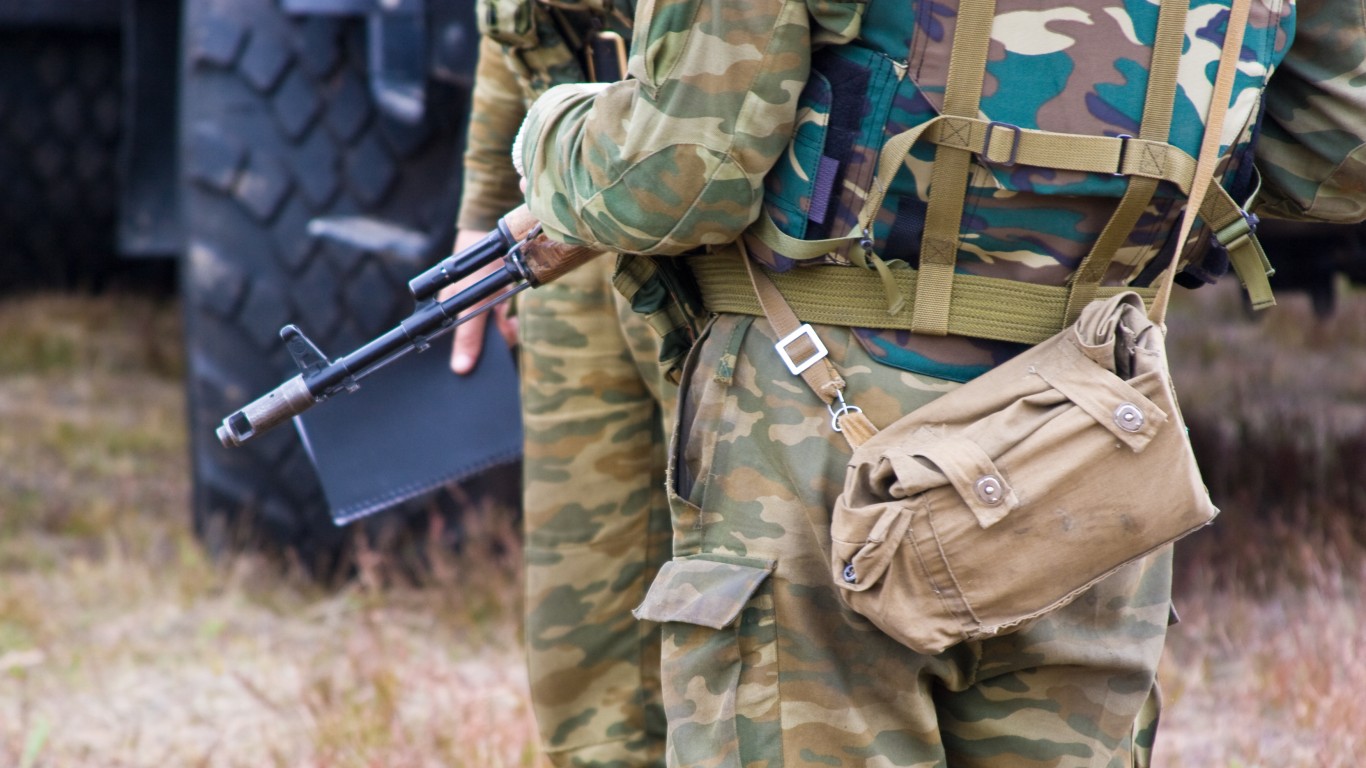
Belarus
> Total sanctions: 1,172
> Sanction announced since Russia’s invasion of Ukraine: 384
> GDP, current USD, 2021: $68.2 billion
> Exports % of GDP, 2021: 72.1%
> Imports % of GDP, 2021: 66.6%
> Democracy index: 2.4 out of 10, #146 of 167 countries
> Population, 2021: 9,340,314
Belarus has been supporting Russia’s aggressions against Ukraine, leading to an escalation of sanctions against this county of 9 million people whose capital of Minsk is 440 miles from Moscow. Since Russia began a full-scale invasion of Ukraine earlier this year, Western allies, including Japan, have imposed hundreds of sanctions targeting Belarussian entities and individuals.
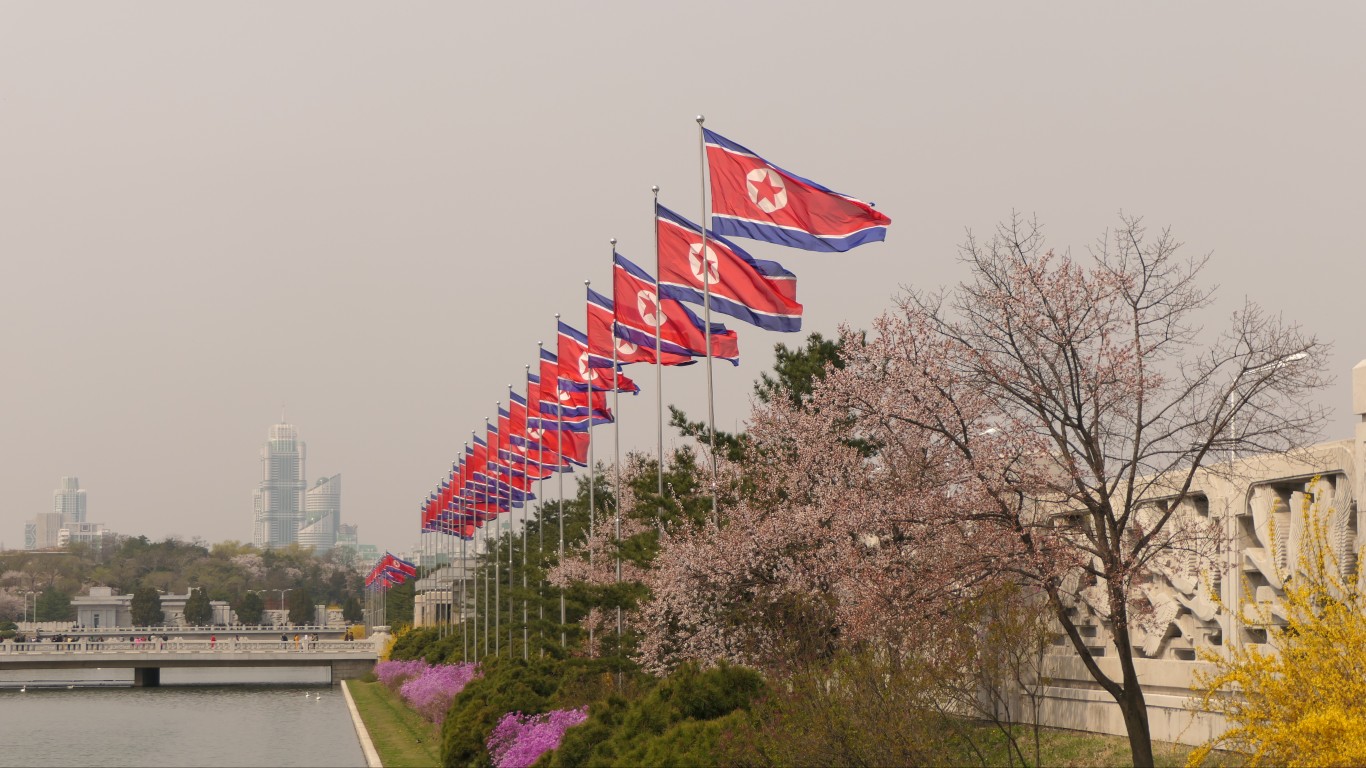
North Korea
> Total sanctions: 2,106
> Sanction announced since Russia’s invasion of Ukraine: 54
> GDP, current USD: N/A
> Exports % of GDP: N/A
> Imports % of GDP: N/A
> Democracy index: 1.1 out of 10, #165 of 167 countries
> Population, 2021: 25,887,045
The U.S. has imposed sanctions on the Hermit Kingdom since the Korean War, imposing broad bans against trade and investment, targeting entities and individuals, for a series of offenses, including its nuclear program, human rights abuses, cybercrimes, and money laundering. The U.N. Security Council has its own series of resolutions against North Korea for its ongoing nuclear weapons program.
[in-text-ad-2]
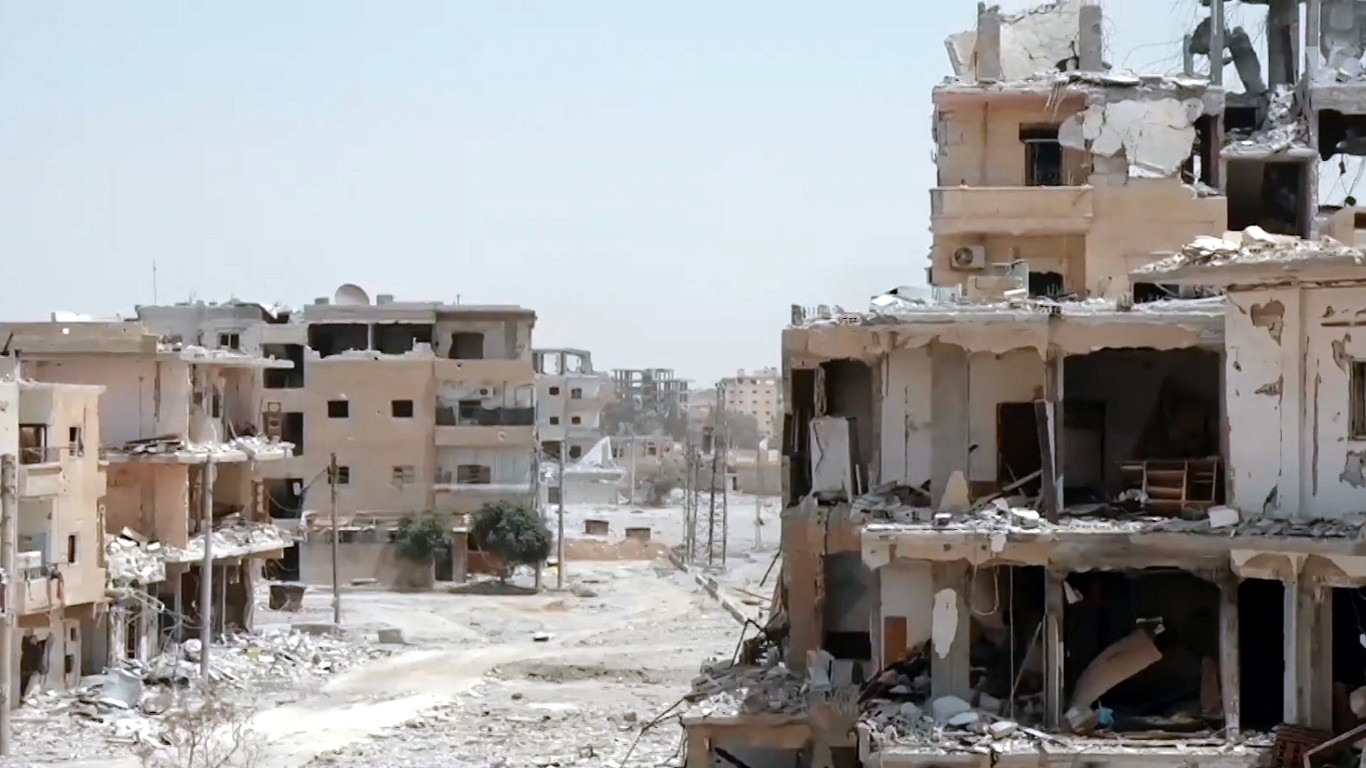
Syria
> Total sanctions: 2,644
> Sanction announced since Russia’s invasion of Ukraine: 46
> GDP, current USD, 2018: $21.4 billion
> Exports % of GDP, 2019: 12.7%
> Imports % of GDP, 2018: 35.7%
> Democracy index: 1.4 out of 10, #162 (tied) of 167 countries
> Population, 2021: 18,275,704
Though the U.S. has imposed sanctions on Syria since the 1970s, the most recent series of sanctions came in two waves: in the 2000s against the country’s support for Lebanon’s Shia Islamist political organization and militant group Hezbollah, and in 2011, after the start of Syria’s civil war. The European Union joined the U.S. in imposing sanctions in 2011, and the EU has its own smaller set of sanctions targeting Islamic State group activities in the country. The U.K. has had autonomous sanctions since its secession from the EU in 2020.
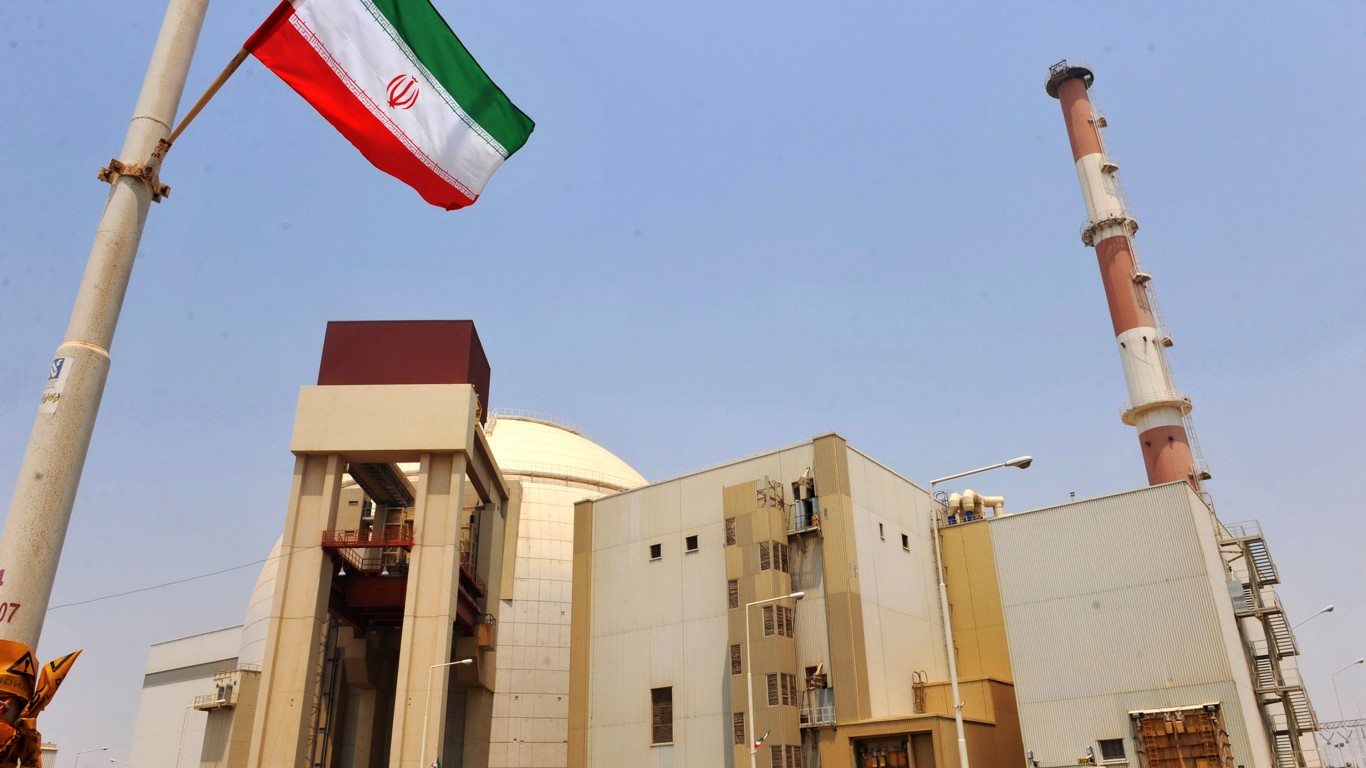
Iran
> Total sanctions: 3,978
> Sanction announced since Russia’s invasion of Ukraine: 362
> GDP, current USD, 2020: $231.5 billion
> Exports % of GDP, 2020: 20.8%
> Imports % of GDP, 2020: 25.5%
> Democracy index: 2.0 out of 10, #154 (tied) of 167 countries
> Population, 2021: 85,028,760
Like North Korea, much of the focus of Western sanctions has been related to Iran’s efforts to develop nuclear weapons. But sanctions have also been the result of the Iranian government’s support of Shia militant groups in the region and domestic involvement in human rights abuses, most recently against feminist activists. The U.S. has maintained sanctions since the 1979 Iranian revolution that swept out a pro-Western authoritarian monarchy and replaced it with an authoritarian Islamic republic under a supreme leader.
[in-text-ad]
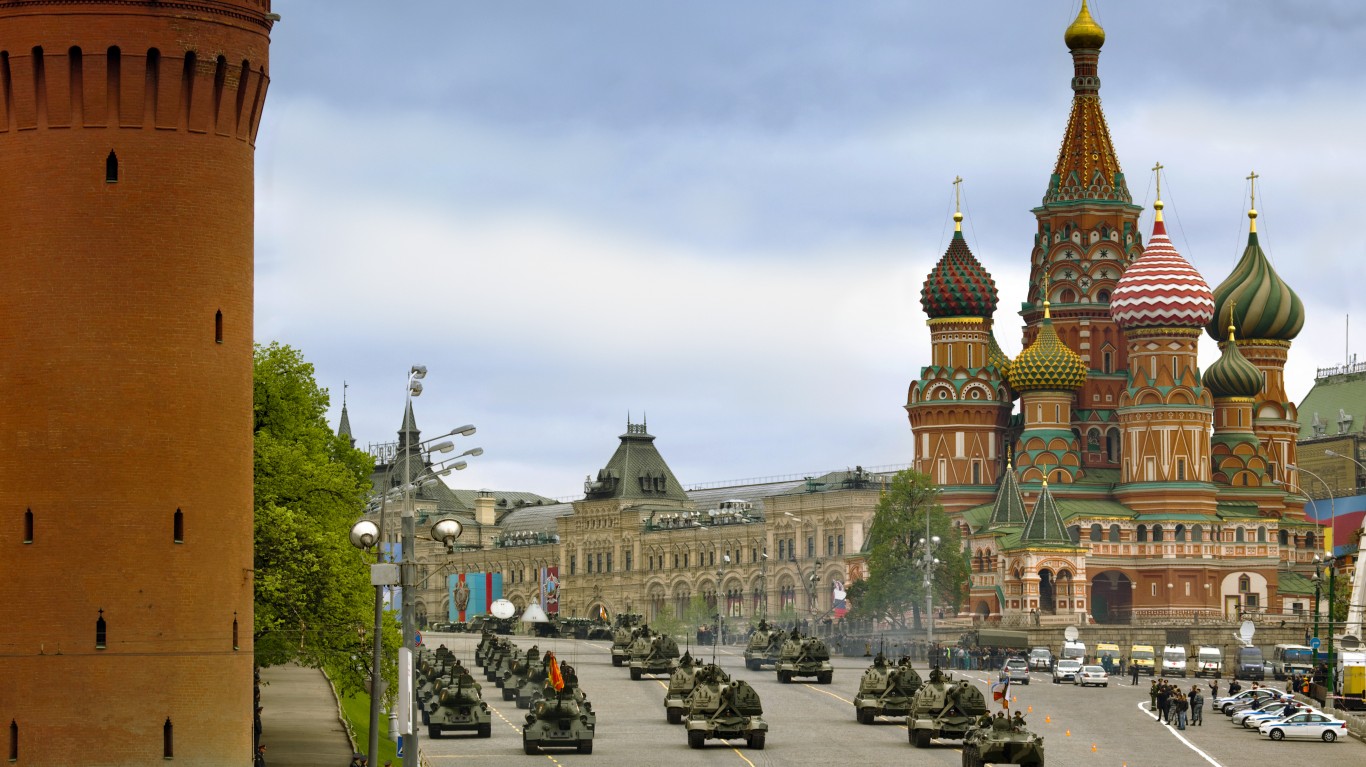
Russia
> Total sanctions: 12,902
> Sanction announced since Russia’s invasion of Ukraine: 10,207
> GDP, current USD, 2021: $1,775.8 billion
> Exports % of GDP, 2021: 30.8%
> Imports % of GDP, 2021: 21.3%
> Democracy index: 3.2 out of 10, #124 of 167 countries
> Population, 2021: 143,446,060
Sanctions against Russia have been building since Moscow’s decision to annex Crimea in 2014, but the number of sanctions against Russian entities and individuals has grown nearly 280% since Russia escalated its conflict with Ukraine into a full-blown invasion. Most of these sanctions have been imposed by the United States, Canada, the U.K., Switzerland, the European Union, France, Australia, and Japan.
The #1 Thing to Do Before You Claim Social Security (Sponsor)
Choosing the right (or wrong) time to claim Social Security can dramatically change your retirement. So, before making one of the biggest decisions of your financial life, it’s a smart idea to get an extra set of eyes on your complete financial situation.
A financial advisor can help you decide the right Social Security option for you and your family. Finding a qualified financial advisor doesn’t have to be hard. SmartAsset’s free tool matches you with up to three financial advisors who serve your area, and you can interview your advisor matches at no cost to decide which one is right for you.
Click here to match with up to 3 financial pros who would be excited to help you optimize your Social Security outcomes.
Have questions about retirement or personal finance? Email us at [email protected]!
By emailing your questions to 24/7 Wall St., you agree to have them published anonymously on a673b.bigscoots-temp.com.
By submitting your story, you understand and agree that we may use your story, or versions of it, in all media and platforms, including via third parties.
Thank you for reading! Have some feedback for us?
Contact the 24/7 Wall St. editorial team.

